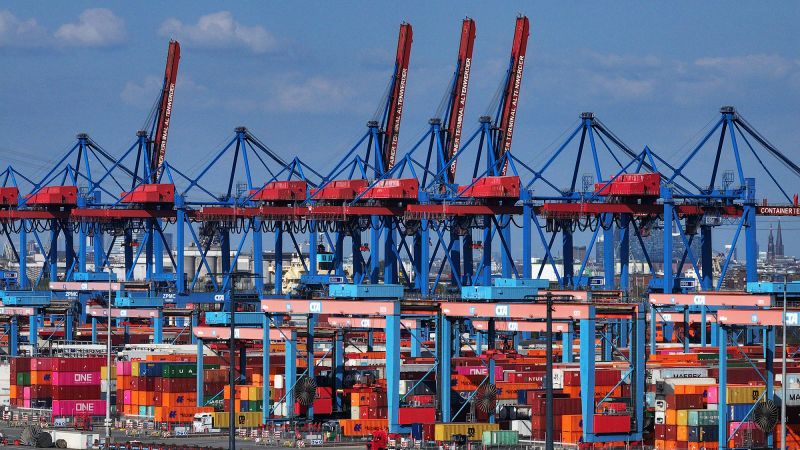Ford Expects $2 Billion Loss Due to Tariffs

Introduction
Ford, one of the largest American car manufacturers, has announced that it expects to lose $2 billion this year due to the tariffs imposed by President Donald Trump. This is the latest in a series of warnings from major corporations about the consequences of the ongoing trade disputes between the US and its global trading partners.
Impact on Ford
The tariffs, which have been met with backlash from many industries, have led to significant financial losses for Ford. The company has seen a decline in its profits and has had to cut jobs and reduce production in order to mitigate the effects of the tariffs. This not only affects the company's bottom line, but also the livelihoods of its employees and the overall economy.
Broader Consequences
Ford's announcement is just one example of the widespread impact of the tariffs on American businesses. Many companies are facing similar challenges and are being forced to make difficult decisions in order to stay afloat. The tariffs have also led to increased prices for consumers, making it harder for individuals and families to make ends meet.
About the Organizations Mentioned
Ford
## Overview Ford Motor Company is a global automotive industry leader, recognized as the second-largest automaker in the United States (after General Motors) and the sixth-largest worldwide[1]. Headquartered in Dearborn, Michigan, Ford designs, manufactures, markets, and services a full line of vehicles—including cars, trucks, SUVs, electrified vehicles, and luxury vehicles under the Lincoln brand[1]. The company operates in every major automotive market and is renowned for its innovation, manufacturing scale, and iconic brands. ## History and Key Achievements Founded in 1903 by Henry Ford, the company revolutionized the automotive industry with the introduction of the Model T in 1908, making cars affordable for the masses through assembly line production. This innovation not only transformed Ford but also set a new standard for industrial manufacturing worldwide. Over more than a century, Ford has introduced several landmark vehicles, such as the F-Series trucks—America’s best-selling vehicle for over four decades—and the Mustang, an enduring symbol of American automotive culture[1]. ## Current Status As of 2025, Ford continues to demonstrate strong financial performance, with revenues of $185 billion and net profits of $5.9 billion in 2024[1]. The company is led by CEO Jim Farley, who has prioritized both electrification and quality improvements since taking the helm in 2020[1]. Ford’s vehicle lineup remains robust, with the F-Series leading U.S. truck sales and electrified vehicles accounting for nearly 16% of its U.S. sales in the third quarter of 2025[3]. The company is aggressively investing in electric vehicles (EVs), committing $5 billion to develop a family of affordable, adaptable EVs and building a new battery plant in Michigan[2]. ## Notable Aspects and Challenges Ford is currently at a pivotal moment in its history. It is reinventing its manufacturing system to produce next-generation EVs, aiming to secure American jobs

















